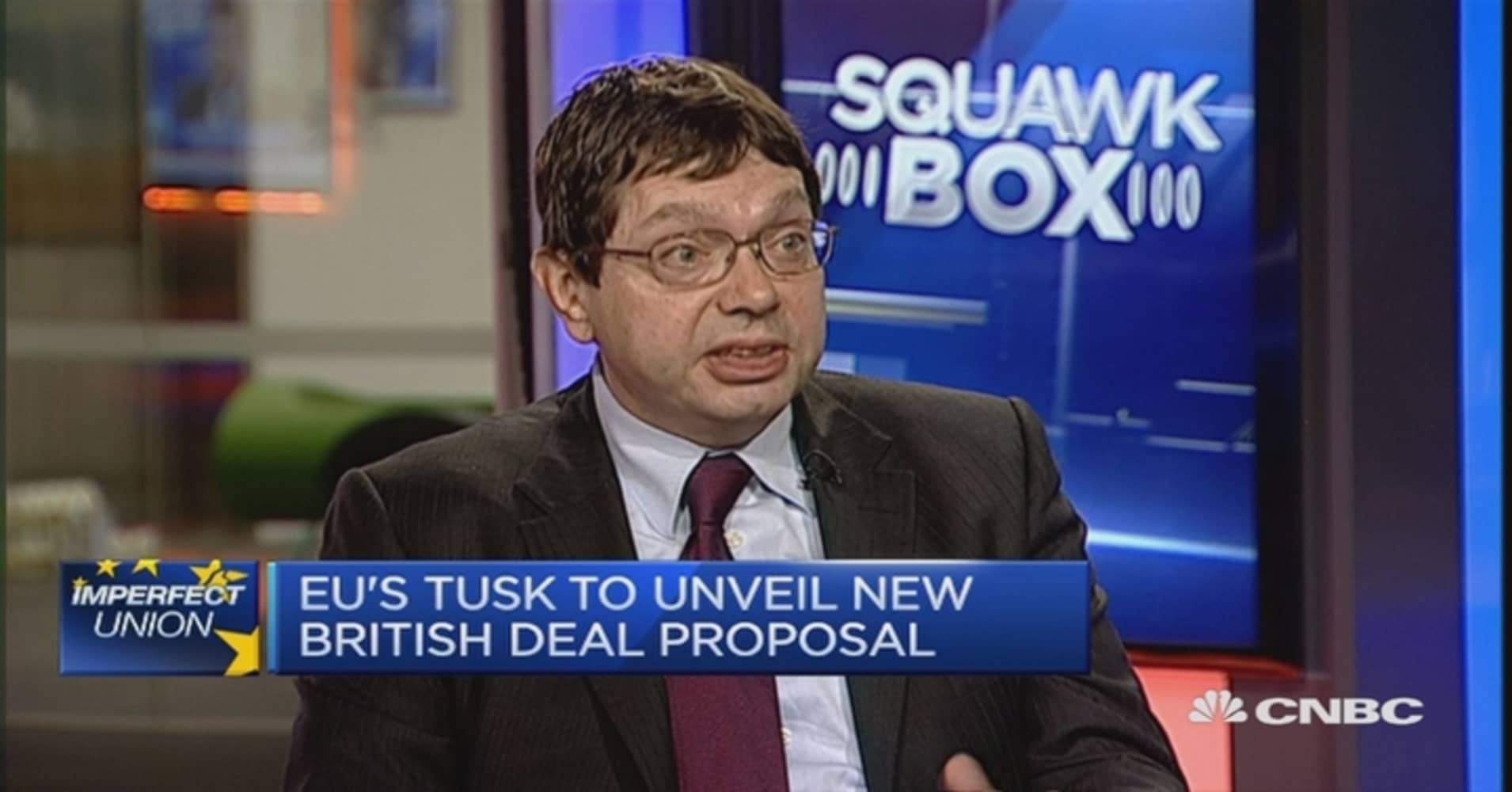Fra Stockmann Contra Corner:
Here’s just one more example of how central banks and their governments have turned financial markets into a romper room of crybabies. They just can’t stop demanding another nip on the juice bottle:
As finance chiefs and central bankers from Group of 20 nations gather in Shanghai, Citigroup Inc.’s Steven Englander said a failure to include more explicit support for fiscal stimulus in the closing statement from policy makers would be taken badly by investors.…….“Keeping the previous language would be very disappointing and would be viewed as either complacent or reflecting policy paralysis,” Englander, Citigroup’s head of currency strategy for major developed economies, said in a Feb. 25 report. He urged the G-20 to “man up and tell member countries that monetary policy should be accompanied by fiscal expansion.”
C’mon. This cat has the gall to demand that the governments of the world bury themselves even deeper in debt when that’s exactly what they have been doing most of this century?
‘Man-up’ my eye. What’s needed here is for so-called economists like Dr. Englander to crawl out of the rabbit hole they’ve been in for years on end. Indeed, in his case the rabbit hole apparently started at 33 Liberty Street where he was the New York Fed research director; and then tunneled through the bowels of Barclays, Citibank/Salomon Smith Barney and the OECD.
As they say, Englander has never had a real main street job. Nor has he met a “market” that wasn’t medicated and manipulated by agencies of the state; or that the gamblers and punters he writes for didn’t think should be goosed even more.
In fact, the world is now staggering under $60 trillion of sovereign debt and $225 trillion of total debt. Since the central bankers, finance ministers and IMF apparatchiks now fluttering around in Shanghai have been banging the “stimulus” lever for upwards of two decades, you have to be deep in the rabbit hole to think that what’s needed now is even more of the same.
Just exactly who does he think has any fiscal headroom left? Would that be Japan, which has public debt at 240% of GDP already; which is still borrowing 40% of what it spends even after last year’s consumption tax increase; and which is fast heading for fiscal/demographic demise as a bankrupt retirement colony?

In Europe, leave the Germans out of it because they still represent an island of fiscal rationality in a world governed by Keynesian policy apparatchiks such as Jack Lew and Christine Legarde. But then the rest of the eurozone’s debt-to-GDP ratio is well over 100% on average and is fast heading for the fiscal dead-end represented by Italy at 133%.
Needless to say, aging socialist welfare states have no chance of survival with public debt burdens of that magnitude. So who in their right mind could recommend that the EU states get out their fiscal helicopters? Einstein was not wrong when he called that insanity.

And please do not suggest the United States. The deficit is already heading back up—-from $440 billion last year to a minimum of $600 billion this year—–and will re-cross the trillion per year mark as soon as the impending recession becomes fully formed. In fact, the CBO already assumes $8.5 trillion of incremental national debt under current policies over the next decade; and that assumes no recession, ever!
Just assume that the average nominal growth rate for national income and wages/salaries during the next decade averages the same as the last 15 years. And that would be a real feat given the impending collapse of the Red Ponzi and the tidal wave of deflation rolling through the global economy.
Still, under that assumption you get cummulative deficits of at least $15 trillion and a public debt total of $35 trillion by mid-way in the next decade. Since nominal GDP has been growing at the tepid rate of 2.7% annually since Q42007 and shows no signs of breaking out of that zone, it means that the US debt-to-GDP ratio will be right up there in the Italian League at 130% by 2025.
And forget fiscal stimulus in the Red Ponzi. Even the Beijing commissars know they are nearly bankrupt and will spend the whole weekend resisting the Keynesian infections being imported from the West. As I showed in yesterday’s post, China’s true government debt to GDP ratio is already at 100% on a de facto basis. So who does this Wall Street clown think has the headroom to “man-up”?
As a purely statistical matter, China’s true central government fiscal debt is not even close to 15% of GDP or just under $2 trillion. It’s actually nearly $11 trillion or 100% of GDP, and that’s on the phony, bloated GDP total published by Beijing on the last day of each quarter—-never to be revised again, world without end.
Here’s why. There is no difference whatsoever between the state and the economy in the Red Ponzi. China’s hideously bloated $30 trillion banking system—including trillions of off-balance sheet loans through wealth management products, entrusted loans, receivables financing and many more crooked devices—-would not last a week without state backing. That means that even if the embedded loan loss rate in the system is just 15%, there is already another $4.5 trillion claim on China’s central government balance sheet. Sooner or later Beijing will be forced to bailout the banks.
Likewise, the entirety of the $3.5 trillion of acknowledged LGFV debt—-and probably the number is far higher in actuality—–would blow up in an instant were it not for Beijing’s implicit backing. On top of that there is the need for trillions more to be reserved for the cost of massively downsizing and restructuring China’s vastly overbuilt industrial plant, beginning with the steel industry and all its upstream and downstream supply chain partners.
Indeed, all this stimulus has “worked” so awesomely that we now have unprecedented overinvestment, malinvestment and excess capacity everywhere. That has triggered, in turn, an epochal commodity deflation and CapEx depression——even as the speculative bubbles and hideous inflation of financial assets fostered by the central banks teeter in the edge of collapse.
In that fraught context don’t count on the so-called Wall Street economists to say anything that remotely reflects the gravity at hand. Instead, the likes of Englander deserve a special hard kick to the backside for constantly whining and flacking for more stimulus. And in Englander’s case its not just the routine kind of free money stimulus that most dyed-in-the-wool Keynesians are constantly jawing about.
No, this crazy fool is out-and-out campaigning for a Washington helicopter money drop. He is pleased to call this new milestone in policy insanity “cold fusion”, and, indeed, nuking the taxpayers is exactly what it would entail:
The medicine may nevertheless need to be stronger than the traditional prescription. If the world economy enters a downdraft, Steven Englander, global head of G-10 FX strategy at Citigroup Inc., proposes a more revolutionary response, akin to the “helicopter money” once advocated by Milton Friedman.
In what he calls “cold fusion,” politicians would cut taxes and boost spending. Central banks would then cover the resulting increase in borrowing by purchasing more bonds as part of a commitment to permanently expand their balance sheets. The easier fiscal policy would be covered by QE Infinity.
“Politically it is difficult for central banks to outright endorse monetization of government debt, but faced with another slump and armed with ineffective policy tools, we expect that central banks will quickly give the wink and nod to fiscal measures,” Englander said in a report to clients last week.
The upshot would be greater purchasing power would be injected straight into the economy, increasing activity and inflation. Long-term bond yields would rise, yet short-term yields adjusted for inflation would turn negative.
“Increasingly the absence of fiscal policy is viewed as one of the reasons for a less than satisfactory recovery,” said Englander. “With rates at zero, fiscal policy will be needed to offset any negative shock that hits global economies.”
Yes, this kind of snake oil is what passes for thinking in today’s Wall Street casino. It is symptomatic of a rotten financial culture that has been fostered by years of central bank coddling and Washington bailouts. It is the reason why TARP and the Fed’s flood of money in the fall of 2008 was such a cataclysmic error.
Had the rules of capitalism not been so egregiously violated by the clueless George Bush and his passel of Wall Street water boys at the Treasury, a whole generation of gamblers would have been wiped out. Lessons would have been learned. The likes of Steve Englander would be driving for Uber.
With regards to the case at hand, Citigroup should have been put out of its misery at the time of the crisis. Contrary to the urban legends which have grown up since, there is no reason why Citi’s regulated bank could not have been taken over by the FDIC, cleaned-up and ultimately refloated as a narrow bank in the business of taking deposits and making loans.
All of the toxic waste that had been accumulated by Sandy Weill’s two decade long spree of empire building was in the holding company or stuffed into off-balance sheet shells. The latter should have been marched straight to chapter 11. The gamblers and hot shots who played in these venues should have lost their shirts. The Wall Street culture of gambling, greed and policy entitlement would have been extinguished once and for all.
Yes, Englander claims that another massive fiscal expansion could do no harm because the central banks would be instructed to monetize all of it on a permanent basis. He has the audacity to call it “cold fusion” in an attempt to give what amounts to crank economics an aura of scientific authority. But then the will-o-wisp of nuclear cold fusion has been blessed with its share of cranks, too.
So just consider this. The manic money printing by the world central banks over the last two decades has taken their collective balance sheets from about $2 trillion to $22 trillion. Presumably, under Englander’s preposterous scheme that incendiary eruption of central bank credit would be taken to $30 trillion, $50 trillion or whatever.
No sweat!
What we are saying is that while the politicians are bashing each other in a gong show that passes for a democratic election process, the real power at the heart of modern crony capitalist finance is being exercised by a small posse of unelected central bankers and their megaphones and acolytes on Wall Street and the other major financial centers. Citibank’s Steve Englander is on the same page of fraudulent finance as his former employer at the New York Fed and the Reserve Board itself.
Here is what governor Lael Brainard had to say today in behalf of keeping overnight money quasi-free at 38 basis points, thereby keeping the carry trade gamblers in clover and deferring the Fed’s scheduled baby steps toward normalization indefinitely:
Tightening financial conditions in the U.S. over the past year and a half have reached the equivalent of three quarter-percentage-point interest-rate hikes, said Federal Reserve Governor Lael Brainard on Friday.
You can’t make this stuff up. The wounded remnants of an honest capital market have been trying to correct the giant financial bubble enabled by the Fed’s massive monetary repression. That is, bring down closer to earth the egregious over-valuation of stocks and the absurd flattening of junk bond spreads which resulted from 84 months of free money.
Yet this monetary whacko has the audacity to call this “tightening”! They are not only destroying honest capital markets and price discovery; they are making a mockery of financial discourse itself.
In any event, there may be only a few sane policy-makers left in the world. So maybe the loud “nein!” coming from Germany this weekend represents the last gasp of rationality, but at least someone finally broke the spell of Keynesian group think and spoke the obvious.
By Birgit Jennen at Bloomberg
Germany’s finance minister opposed any fiscal stimulus plan from the Group of 20, whose top economic officials gather Friday, and instead sought to focus on structural reforms to strengthen national growth rates.
Wolfgang Schaeuble, speaking hours before meeting with his counterparts from the G-20 developed and emerging markets, also said that the space for monetary policy has been exhausted. He warned that using debt to fund growth just leads to “zombifying” economies.
“Talking about further stimulus just distracts from the real tasks at hand,” Schaeuble said at a conference in Shanghai. German policy makers “do not agree on a G-20 fiscal stimulus package, as some argue in case outlook risks materialize.”
The German finance minister said that the slide in oil prices has already offered a “huge” stimulus for demand. He also said that expansive fiscal policies could lay the groundwork for a future crisis.
Source: Germany Opposes Any G-20 Fiscal Stimulus; Focus on Reform – Bloomberg





